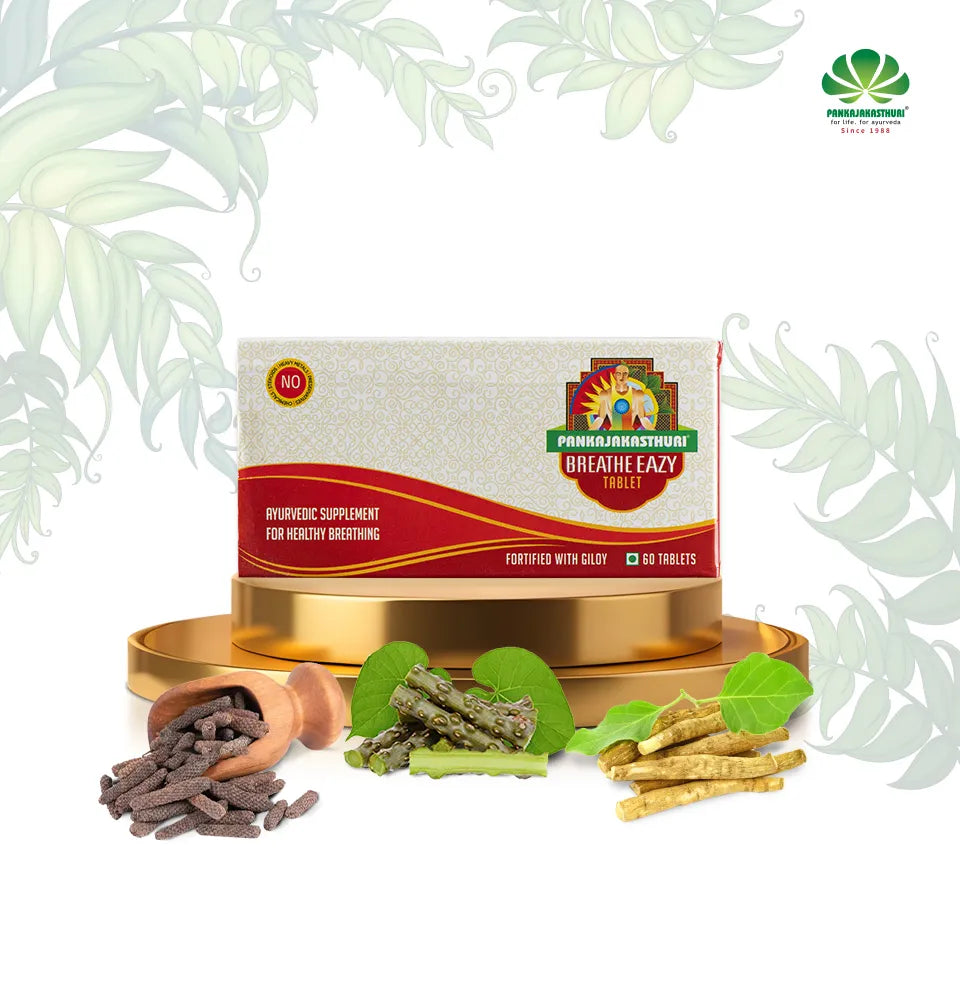
Why Ayurveda Prioritizes Digestion in Managing Lifestyle Disorders ?

The Importance of Digestion in Ayurveda
In Ayurveda, digestion is considered the foundation of health. Ancient texts emphasize that most diseases are connected with gut health. When digestion is strong, nutrients are absorbed efficiently, energy flows smoothly and the body resists illness. But when digestion weakens, toxins (known as Ama) accumulate, paving the way for chronic lifestyle disorders.
Ayurveda does not just treat symptoms, it looks at the body, mind and environment together. Lifestyle disorders, which are largely the result of poor habits and stress, are seen as imbalances in doshas (Vata, Pitta, Kapha). And at the root of these imbalances is often impaired digestion. Thus, before addressing any disorder, Ayurveda restores digestive health.
What Causes Digestive Problems according to Ayurveda?
- Common Lifestyle and Dietary Issues
Digestive problems in Ayurveda are often linked to everyday habits and food choices. Overeating or following irregular meal timings puts excess strain on the digestive system, weakening its efficiency. A diet dominated by processed, oily or excessively spicy foods further disrupts the balance of Agni (digestive fire). Additionally, consuming incompatible food combinations - known in Ayurveda as Viruddhahara - creates internal disharmony, leading to the formation of toxins and impaired digestion.
- Stress, Irregular Eating and Poor Habits
Stress, lack of sleep and sedentary routines disturb the nervous system and weaken the Agni. Skipping meals, late-night eating and constantly snacking overload the digestive fire, leading to incomplete digestion and toxin buildup.
The Role of Agni in Ayurveda: The Fire of Digestion
In Ayurveda, Agni is described as the vital digestive fire that drives all metabolic processes in the body. It is not just responsible for breaking down food but also for transforming it into energy, strength and vitality. A balanced Agni ensures proper absorption of nutrients, supports nourishment of tissue, maintains immunity and sustains overall health.
When Agni is strong, the body feels light, energetic and disease-resistant. On the other hand, weak or disturbed Agni leads to poor digestion, accumulation of toxins (Ama) and the onset of lifestyle disorders.
- How Weak Agni Leads to Ama (Toxins) and Disorders
When Agni is weak, food remains partially digested. This undigested matter turns into Ama—a sticky, toxic substance that clogs channels and disrupts the balance of doshas, triggering chronic diseases.
- Connection Between Digestion and Lifestyle Disorders
Poor digestion causes improper nourishment of body tissues, eventually leading to fatigue, unwanted weight gain and a weakened immune system. Ayurveda views chronic lifestyle disorders such as diabetes (Madhumeha), hypertension, and obesity as outcomes of long-standing metabolic imbalances - most of which stem from impaired digestion and the buildup of toxins (Ama).
How to Improve Digestion in Ayurveda Naturally?
- Ayurvedic Diet and Mindful Eating Practices
Ayurveda emphasizes that how you eat is just as important as what you eat and when you eat. Warm, freshly prepared meals are considered ideal because they are easier to digest and energize the body. Overeating is discouraged, as it weakens Agni (digestive fire) and leads to toxin buildup. Instead, Ayurveda advises stopping when the stomach feels about three-fourths full. Eating at consistent times each day and avoiding distractions such as screens or hurried conversations helps the body focus fully on digestion, ensuring better absorption of nutrients.
- Use of Herbs and Spices for Better Digestion
Incorporating natural herbs and spices into daily meals is a cornerstone of Ayurvedic nutrition. Ginger is widely recommended for stimulating Agni, preventing bloating and improving appetite. Spices such as cumin, fennel and coriander not only enhance flavor but also promote smooth digestion and absorption of nutrients. Triphala, a traditional blend of three fruits, is valued for its gentle detoxifying action, improving bowel movements and preventing constipation - thereby keeping the digestive system light and balanced.
- Daily Routines (Dinacharya) to Strengthen Agni
Beyond food, Ayurveda prescribes simple daily routines to keep digestion strong. Starting the day with warm water awakens Agni and clears accumulated toxins. Regular light exercise or yoga helps maintain metabolism and circulation. Importantly, the heaviest meal of the day should be taken at midday, when Agni is at its peak and the body is best equipped to process food. Following these small but consistent practices helps maintain digestive strength and prevents the root causes of lifestyle disorders.
Best Ayurvedic Remedies for Common Digestive Problems
Ayurveda offers simple yet effective remedies to relieve everyday digestive issues. For acidity, drinking coriander-infused water helps soothe excess heat in the stomach. Bloating can be eased with fennel tea or a pinch of ajwain taken with warm water, both of which reduce gas and improve digestion. For constipation, Triphala powder with warm water at night acts as a gentle cleanser, promoting regular bowel movements.
In cases of chronic digestive disorders, Ayurveda recommends deeper detoxification through Panchakarma therapies such as Virechana (therapeutic purgation) and Basti (medicated enema) to expel toxins and restore balance to the digestive system.
Preventive Care: Balancing Agni for Long-Term Health
Ayurveda emphasizes prevention over cure and balancing Agni is central to long-term health. Following Ritucharya (seasonal routines) helps the body adapt naturally - choosing light, cooling foods during summer and more nourishing meals in winter, while using seasonal spices and herbs to keep digestion stable throughout the year. Alongside diet, lifestyle habits play a key role. Regular and restful sleep strengthens Agni and maintains hormonal balance, while consistent physical activity supports metabolism and circulation. When meals, rest and exercise follow a steady rhythm, the doshas remain in harmony, reducing the risk of lifestyle disorders and ensuring overall well-being.
Conclusion: Ayurveda’s Digestive Wisdom for Modern Lifestyle Disorders
Ayurveda teaches us that healing begins in the gut. By strengthening Agni, preventing Ama formation and following mindful dietary and lifestyle practices, we can prevent and manage lifestyle disorders. In today’s fast-paced world, adopting Ayurveda’s digestive wisdom can transform not just health, but overall quality of life.















